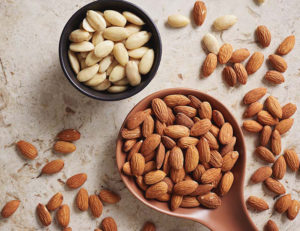 You know that high cholesterol is harmful to your health, and it can lead to various diseases and making yourselves more prone to heart attacks, the most disastrous one. To avoid such a risk, you must stop consuming fatty foods as they are one of the main reasons for having high cholesterol in your bodies. It is also necessary to check and control cholesterol in diabetes.
You know that high cholesterol is harmful to your health, and it can lead to various diseases and making yourselves more prone to heart attacks, the most disastrous one. To avoid such a risk, you must stop consuming fatty foods as they are one of the main reasons for having high cholesterol in your bodies. It is also necessary to check and control cholesterol in diabetes.
Types of cholesterol:
There are two types of cholesterol levels:
- High-density lipoprotein (HDL)
- Low-density lipoprotein (LDL)
High-density lipoprotein (HDL) cholesterol a.k.a. good cholesterol is essential for the human body where it collects unneeded cholesterol from your blood and returns it to your liver where it is removed from the body. HDL protects your blood vessels from damage.
Low-density lipoprotein (LDL) cholesterol a.k.a. bad cholesterol is not good for the human body, and it needs to be checked all the time. LDL grows within the walls of your blood vessels and clogs the arteries in blood. It increases the risk of heart attacks.
So, to control unhealthy cholesterol levels, you must include these five cholesterol-lowering foods in your daily diet.
1.. Pulses:
Pulses, grains, peas, chickpeas, and beans all help in lowering cholesterol.
According to a study published in the Canadian Medical Association Journal (cmaj.ca), eating three-quarters of a cup of pulses a day reduces your LDL, or bad cholesterol, by up to 5%. Though it is not enough, a significant shortcoming.
Pulses have many uses. They range from breakfast bread to snacks and smoothies, and can also top-up to salads and soups. Pulses provide protein and are very low in fat. One cup of cooked pulses has only 242 calories.
Continuous use of pulses prevents blood pressure from rising to dangerous levels. Experts say that pulses play a significant role in purifying human blood. All pulses are like a full treasure of iron. Eating a plate full of pulses daily can provide 37% of iron of the required diet.
Another vital benefit of pulses is that it strengthens your muscles.
2.. Avocados:
Avocados are a dominant source of nutrients. They are loaded with both polyunsaturated and monounsaturated fats to help lowering blood cholesterol levels. Experts from American Heart Association advise eating at least an avocado a day to improve LDL cholesterol levels, particularly in those people who are diabetic and obese.
3.. Barley:
Barley is also known as a cholesterol-lowering super-food. It contains a soluble fiber called beta-glucan that helps in lowering cholesterol levels. This beta-glucan is a heart-healthy fiber, and it is also available in other grains like oats.
A cup of barley porridge is rich in fiber, iron, protein, and vitamin B1. Including this barley cup in your daily diet means you have a lower risk of heart attacks, low blood sugar, and cholesterol levels. And your nervous system will continue to improve.
4.. Almonds:
Like avocados, almonds are also rich in monounsaturated fatty acids. They lower LDL cholesterol and also help in preventing oxidation of LDL that is critical to prevent heart attacks.
 According to a study published in the Journal of Nutrition, consuming almonds regularly in your diet helps to improve HDL cholesterol levels. Eating every day 10 grams of almonds (approximately 8-10 pieces) before breakfast for six weeks raises your good-cholesterol levels to 10 percent, and it further rises to 15 percent if you continue eating them for 12 weeks.
According to a study published in the Journal of Nutrition, consuming almonds regularly in your diet helps to improve HDL cholesterol levels. Eating every day 10 grams of almonds (approximately 8-10 pieces) before breakfast for six weeks raises your good-cholesterol levels to 10 percent, and it further rises to 15 percent if you continue eating them for 12 weeks.
You can also soak almonds in water overnight, make them easy to take off their peels, and release all their nutrients. Soaked almonds are softer and easy to digest.
5.. Green Tea:
Green tea can be beneficial for the blood vessels and arteries in keeping them away to become narrow and hardened. With the passage of time and age, fat builds up in arteries and grows up in the form of a hard block. This blockage affects the oxygen-rich blood supply to the heart and increases the risks of heart attack and stroke. This process usually takes a longer time, but whenever the risk of blocked arteries is exposed, you all know the results. In this situation, regular consumption of green tea can effectively alleviate this chronic condition.
Another great benefit of consuming green tea is that it not only lowers LDL cholesterol levels up to 2.19 mg/dL and helps prevent diseases associated with it but also maintains good-cholesterol levels.
Try to incorporate these five low cholesterol foods in your daily diet. Increasing your intake of these foods will not only keep you healthy but also put you on the path of a balanced diet.
You can also practice a cucumber diet to make sure you are enjoying your meal and getting full without overdoing it.
